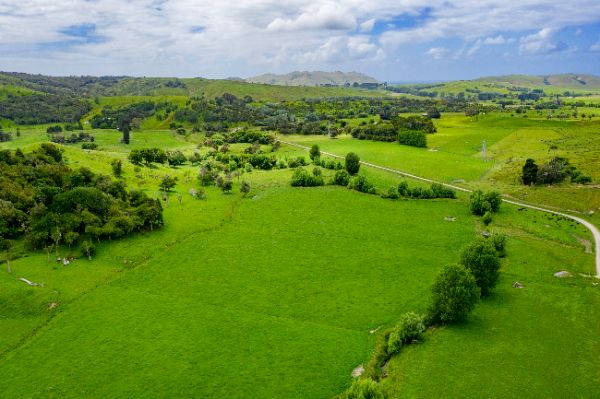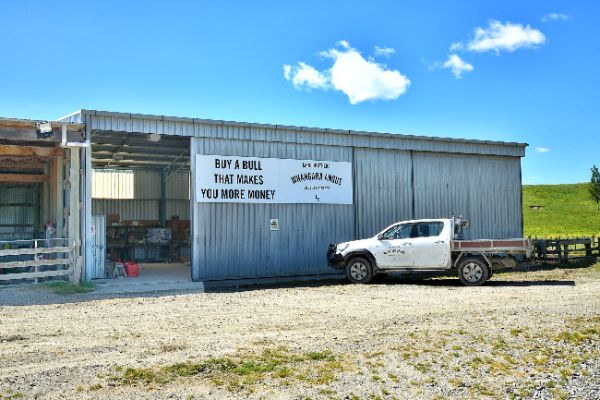Leasing Provides Appealing Pathway To Land Stewardship

Bayleys Rural Insight
Leasing the farm out rather than selling it is proving a new approach to the old challenges of succession, income generation, and farm business growth, providing a level of flexibility for parties on both sides of the leasing fence.
Bayleys Gisborne director and country salesperson Simon Bousfield says with an aging farmer population more landowners are rapidly approaching a point where they may be wishing to exit their property to enjoy retirement, and succession options aren’t available within the family.
However, they can find buyers are either limited in number, or limited by a lack of financial capital to meet the property’s market value.
“But it is also a case that this low interest rate environment is a double-edged sword.
“While it has made farm financing cheaper, it also means the vendor has the prospect of earning significantly less in interest from the farm’s capital value once it is sold. The farm’s return is quite appealing in today’s environment, where the lump of farm capital may only earn 1 percent on term deposit, for example.”
This is prompting more farmers to look at leaving their capital in the farm and leasing the property to a new generation of farmers who may be constrained by capital, but not ideas, innovation, or energy.
“Putting together a comprehensive lease agreement provides the landowner with a means to generate a good steady income stream without the stresses of having to run the farm. It may even mean they can exit the property and choose to live somewhere else in their retirement.”
Simon and fellow Bayleys Gisborne country salesperson Stephen Thomson have recently completed a comprehensive leasing exercise with the Lane Brothers of renown Whangara Angus stud. When ill health compelled Patrick Lane to wind back his involvement, he did not want to sell the cherished family property and opted to explore leasing options.

Having not achieved a lease earlier with prospective leasees, Patrick decided to approach Bayleys to invite interest and gauge the value the market would place on the property for a 20-year lease agreement.
“We ran a tenderprocess to invite interest from around the country, and provide the opportunity to understand where the wider market of leasees would place lease value and terms for the 1,000 hectare property. We were inundated with interest and very encouraged by the feedback throughout. We conducted 45 farm inspections with parties, and had a huge number of genuine tenders for lease, across a generous range of values and terms,” says Simon.
For the leasor, the eventual agreement not only reflected a reasonable lease return, but also an agreement with a party he felt would be a good custodian of the land for the 20-year term, and align with many of his farming values.
“Upon confirming the lessee, we developed an extensive lease document which included photos of all the key infrastructure and fence lines, ensuring both parties were clear on the condition of the property at commencement, and knew this was a benchmark for reviews going forward.
The flexibility of lease options on pastoral farms extends across all types of properties. Dairy farms hold equal appeal given the even higher cost of entry for younger farmers wanting to get a foot on the farm ownership ladder as traditional sharemilking pathways diminish in number.
The return on an average 140 hectare dairy unit can range from $1,200-$1,500 a hectare, and for a debt free older owner provides a very realistic retirement income.
“Leasing provides a very logical succession option for landowners. The landowner can continue to generate a return from the asset they understand, and depending on the tenant and lease arrangements, they won’t have operational headaches to resolve”.
“We all know there are increasing environmental challenges for landowners, and access to capital is becoming harder for the next generation. A sound lease arrangement can provide a solution to both these challenges and ensure the asset is managed appropriately”.
Simon says lease options are only limited by the vision of the parties involved, with variable time periods, terms and conditions all up for agreement.
“With the right parties involved it could be constructed as a “lease to buy” deal, maybe with the leasor leaving some funds in the land as well.
“The opportunities for non-farming entities to also own a farm and set up a lease arrangement with a skilled, motivated farming partner are there too – it is no different from a commercial property lease model in many respects.”
He is confident Bayleys will be managing more lease arrangements in coming months, drawing on a deep pool of pastoral and commercial property talent to help parties develop agreements that provide mutually rewarding opportunities for farmers exiting the land, and new ones starting on it.
Written by Richard Rennie.


 Insurance and Financial Services Ombudsman: Woman Gets $40k More After Disputing Insurer’s Decision
Insurance and Financial Services Ombudsman: Woman Gets $40k More After Disputing Insurer’s Decision BNZ: A Quarter Of Older NZers Fear Going Online Due To Scam Concerns
BNZ: A Quarter Of Older NZers Fear Going Online Due To Scam Concerns University of Auckland: Scientists Develop Tool To Monitor Coastal Erosion In Fine Detail
University of Auckland: Scientists Develop Tool To Monitor Coastal Erosion In Fine Detail Oji Fibre Solutions: OjiFS Proposes To Discontinue Paper Production At Kinleith Mill
Oji Fibre Solutions: OjiFS Proposes To Discontinue Paper Production At Kinleith Mill Hugh Grant: Navigating Digital Adoption In New Zealand - Embracing Change For A Bright Future
Hugh Grant: Navigating Digital Adoption In New Zealand - Embracing Change For A Bright Future Dawn Aerospace: Historic Flight - Breaks Sound Barrier And Global Records
Dawn Aerospace: Historic Flight - Breaks Sound Barrier And Global Records



